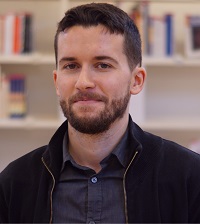Health of Vulnerable Populations and Social Medicine
Social Medicine is concerned with health-based social inequality around accessing care, as well as the health repercussions of living in precarious and unfavorable social environments. Health is largely influenced by social determinants (e.g., the social gradient, social exclusion, housing, unemployment, etc.). When people are disproportionately affected by health issues and have limited access to or receive poorer quality care than the general population, this is referred to as health inequity. These differences between social groups are unfair and avoidable. Social Medicine research is part of the efforts to achieve health equity.
The goals of Social Medicine include:
Identifying populations with health inequities and understanding the mechanisms that cause them;
Working with the affected communities and relevant professionals to co-develop, test and implement solutions aimed at improving access to and quality of care, and improving the health of the populations affected by health inequity;
Providing evidence-based policy recommendations.
Unisanté conducts research into different populations with health inequities, including the deaf and hard-of-hearing, the homeless, forced migrants, LGBTQIA+ communities, and frequent users of emergency services, who commonly experience a wide range of vulnerable situations.
Through our research, we can develop and implement practical solutions that meet the specific needs of the populations concerned, in order to improve their access to care, the quality of the care they receive and their general state of health.
Unisanté uses rigorous and innovative methods that align with the needs of these complex research areas, such as mixed methods and the participatory and community paradigm.
Our projects
- #chronic diseases, ageing population
- #health of vulnerable populations and social medicine
- #mental health
- #health policy, economics, systems and services
- #health of vulnerable populations and social medicine
- #health of vulnerable populations and social medicine
- #public health, epidemiology and biostatistics
- #health promotion, prevention and screening
- #health of vulnerable populations and social medicine
- #public health, epidemiology and biostatistics
- #addictions including smoking cessation
- #chronic diseases, ageing population
- #health promotion, prevention and screening
- #health of vulnerable populations and social medicine
- #public health, epidemiology and biostatistics
- #mental health






